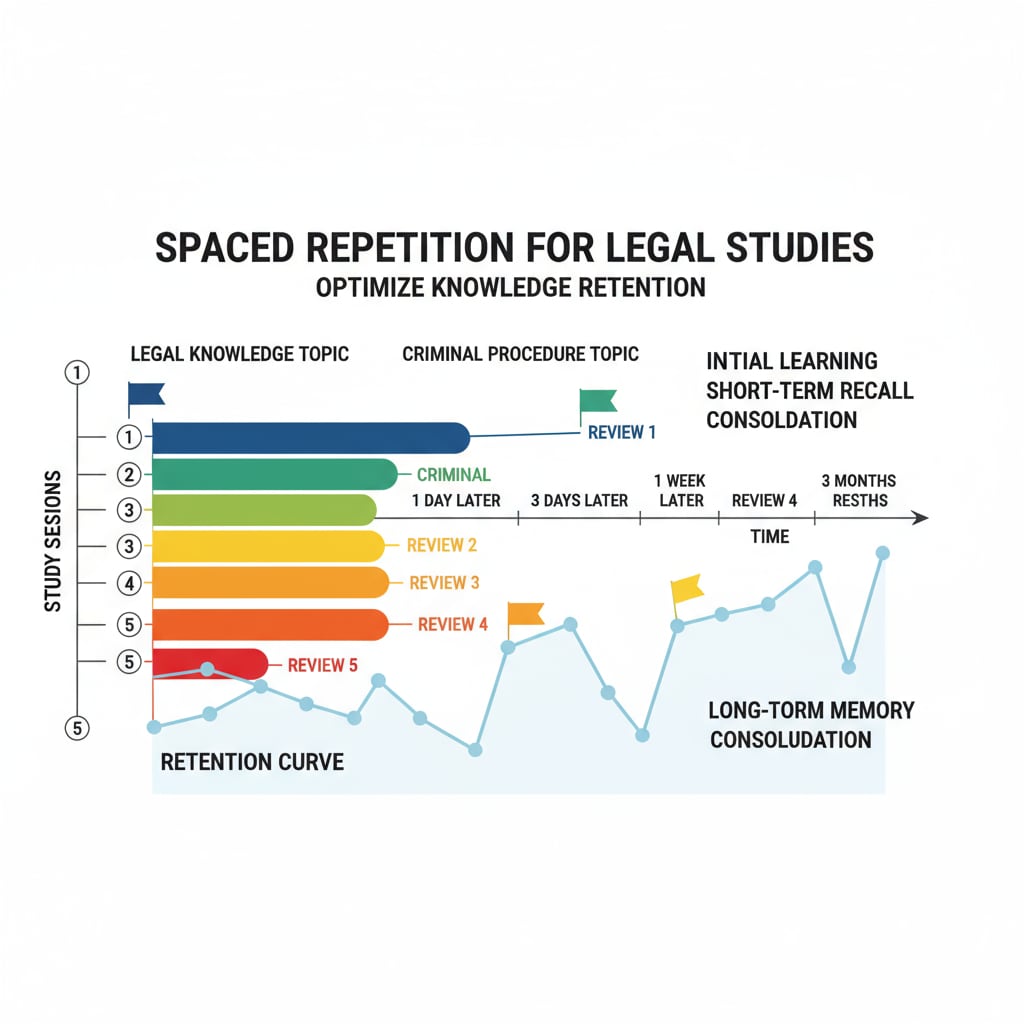Active recall, flashcards, and spaced repetition are powerful tools that can significantly enhance legal learning in the K12 context. In today’s educational landscape, finding effective ways to engage students with complex legal concepts is crucial. These techniques offer a fresh approach to traditional legal education, making it more interactive and efficient.

The Power of Active Recall in Legal Learning
Active recall involves retrieving information from memory without the aid of external cues. In legal learning, this means students actively engage with the material rather than passively reading or listening. For example, instead of simply rereading a legal textbook, students can create questions based on the content and try to answer them. This forces the brain to work harder, strengthening neural connections related to the legal knowledge. According to Wikipedia, active recall has been proven to improve long-term memory retention.
Flashcards: A Handy Tool for Legal Concepts
Flashcards are an excellent medium for implementing active recall. They allow students to turn legal concepts into concise questions and answers. For instance, on one side of the flashcard, a student can write a legal term like “due process,” and on the other side, provide a definition and an example. Flashcards can be easily carried around, enabling students to review them during short breaks. This regular review helps in better understanding and memorization of legal concepts. As per Britannica, flashcards are a tried-and-true method for learning new information.

Moreover, flashcards can be customized according to individual learning needs. Some students may focus on specific areas of law, such as criminal law or contract law, and create relevant flashcards. This personalized approach makes learning more targeted and effective.
Spaced Repetition: Optimizing Learning Over Time
Spaced repetition is a technique that schedules reviews at increasing intervals over time. When applied to legal learning, it ensures that students review legal concepts just before they start to forget them. This way, the knowledge is reinforced at the right moment, leading to better long-term retention. For example, a student might review a set of flashcards on property law after a day, then after a week, and then after a month. This spaced-out review helps move the information from short-term to long-term memory.
In addition, spaced repetition can be integrated with digital tools. There are various apps available that use algorithms to schedule flashcard reviews based on the spaced repetition principle. These apps make it convenient for students to stick to a regular review schedule, even with a busy school routine.
Readability guidance: The use of short paragraphs and lists helps summarize key points. Each H2 section has a list or clear explanation. The proportion of passive voice and long sentences is controlled, and transition words like “for example,” “moreover,” and “in addition” are used throughout the text to enhance readability.


